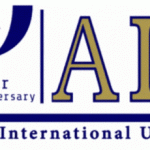The modern world has evolved with new technologies. Here, practical or hands-on experience has become an important part of education and career planning. But amid the rush to gain specialized technical skills, a question looms large; What is a liberal arts degree, and how it can help the modern workforce?
Contrary to common myths, it is far from outdated. The demand for – critical thinkers, effective communicators, and adaptable leaders has increased with passing time. Hence, studying the liberal arts is enriching. Be it on campus or through an online curriculum, one can unlock long-term and meaningful achievements.
What Is a Liberal Arts Degree?
A liberal arts degree is not about political ideology or “just the arts.” It is an extensive education that covers – humanities, social sciences, natural sciences, and mathematics. Instead of focusing solely on one technical area, students can explore diverse subjects to think critically, communicate effectively, and approach problems from multiple angles. Moreover, this subject encourages intellectual curiosity, ethical reasoning, analytical skills, and cultural awareness. More than the need in the job market, this subject enhances engagement and overall skill upgradation.
The Future of Work Is Unpredictable, But Skills Endure
In a world dominated by headlines about AI, coding bootcamps, and rapid technological disruption, it’s fair to wonder how can a major in liberal arts help! The goal should be to become relevant. Different skills have varied requirements depending upon the requirement. So, the focus should be to gain clarity of thought and additional skills which when combined with a degree can bring out the best in an individual in terms of performance and achievement.
- Critical thinkers who can analyze complex problems from multiple perspectives are always on demand.
- Communication skills from writing to public speaking adds great value to any job at hand.
- Adaptability is the key to success in any industry because it helps to open oneself to unlearn and relearn.
- From a global perspective, the objective is to promote global awareness within the diverse workforce.
Career Paths for Liberal Arts Graduates
One of the biggest misconceptions is that a liberal arts education is good only for those opting a career in academics. In truth, it empowers in choosing a wide variety of fields.
Common Career Paths Include:
- Business & Management: Project management, human resources, sales, and marketing
- Law & Public Policy: Legal assistant, paralegal, policy analyst, or pre-law preparation
- Media & Communications: Journalism, public relations, social media strategy
- Education & Training: Teaching, instructional design, academic advising
- Nonprofit & Government Work: Community outreach, public administration, advocacy roles
- Tech & Data: UX design, content strategy, entry-level data analysis roles
Here, one thing must be understood that the basic lies in how an individual uses the degree in their advantage. Combining the study with internships and research projects can add great value.
Exploring Your Liberal Arts Field of Degree
One of the greatest strengths of a liberal arts education is its flexibility. Rather than choosing a conventional career path one must be open to possibilities, customizing as per interests, values, and career goals. For example, Graduates often thrive in publishing, journalism, media, content strategy, and even marketing so, with skills in creative writing and enhanced communication skills – it can become an advantage. Again, for those interested in social services, counseling, human resources, and nonprofit work – sociology and psychology can help. History and political science are suitable for individuals pursuing roles in education, law, public policy, advocacy, or civil service. Philosophy or ethics is a good combination for people having an eye for corporate ethics, consulting, and strategy.
The Rise of Liberal Arts Degrees Online Programs
For many adult learners, working professionals, and non-traditional students, a liberal arts degree which is online offers convenience. These online courses mirror the same academic rigor of an on-campus option. But it provides flexible scheduling and remote learning options. It includes virtual lectures, interactive discussion forums, and customized guidance. This helps to balance education with work and family life.
These online degrees are ideal for:
- Career changers seeking a broader educational foundation
- Professionals aiming to move into leadership roles
- Parents or caregivers needing flexibility
- Students living in rural or underserved areas
The increasing legitimacy of online education—backed by regional accreditation and employer recognition—means that a Liberal Arts BA Online Program can carry just as much weight as a traditional degree.
Liberal Arts Graduates in the Workforce
Studies have shown that liberal arts graduates enjoy long-term career success. Although starting at a lower package compared to STEM majors for the initial days, it is more sustainable in terms of career growth and personal development. This is mostly due to the communication, leadership, and strategic thinking skills one can develop during the course. In a world where jobs are constantly evolving, liberal arts education prepares an individual for the future.
Conclusion: The Power of a Liberal Arts Degree
If you’re wondering, “What Is a Liberal Arts Degree and how can it help me advance my career?”, the answer is clear: it is a dynamic, adaptable, and deeply valuable form of education that prepares you not just for your first job—but for a lifetime of opportunity.
Whether you’re fresh out of high school, mid-career and considering a change, or seeking flexibility through a Liberal Arts BA Online Program, studying the liberal arts can be one of the most strategic moves you make.
So why be a liberal arts graduate? Because in a complex and unpredictable world, the ability to think, adapt, and lead is the most powerful credential of all.
Q. What kind of job do you get with a liberal arts degree?
It offers sustainable career opportunities. Since the program focuses on developing skills such as – critical thinking, communication, research, and problem-solving – beneficial for any type of work. Hence, graduates are well-prepared for the future. After completing the course, one can choose career paths in -education, marketing, public relations, human resources, nonprofit management, journalism, consulting, law, and business. In today’s job market, where every industry is evolving, this degree can add edge to a student.
Q. Is a degree in liberal arts worth it?
Ans: Yes, absolutely! This is a great value add especially in a world where flexibility and critical thinking are key to long-term career success. Liberal arts graduates gain skills that are consistently in demand such as – clear communication, problem-solving ability, adaptability, and emotional intelligence. These “soft skills” are what make an employee valuable to an organization, and this goes way beyond technical knowledge. While some majors may offer a more direct route to a first job, this program can offer resilience and long-term career mobility. With the right internships and networking, it can be a wise investment.
Q. Is a BA the same as a liberal arts degree?
A BA is bachelor of arts which can include a liberal arts education within the degree, but they are different. A BA is an undergraduate degree program. Liberal arts on the other hand, refers to a broad educational philosophy that emphasizes – critical thinking, communication, and interdisciplinary study across the humanities, social sciences, and natural sciences.
Q. Is a liberal arts degree the same as an AA?
These two degrees are related but not the same. An AA is a two-year degree course that can be earned at a community college. It gives a base knowledge in English, history, and sociology. Many students pursue an AA in liberal arts as a beginning to a four-year bachelor’s degree program which offers in-depth knowledge and a broader range of electives. While both emphasize the development of critical thinking and communication skills, the BA offers more opportunities for specialization, advanced coursework, and career flexibility.


